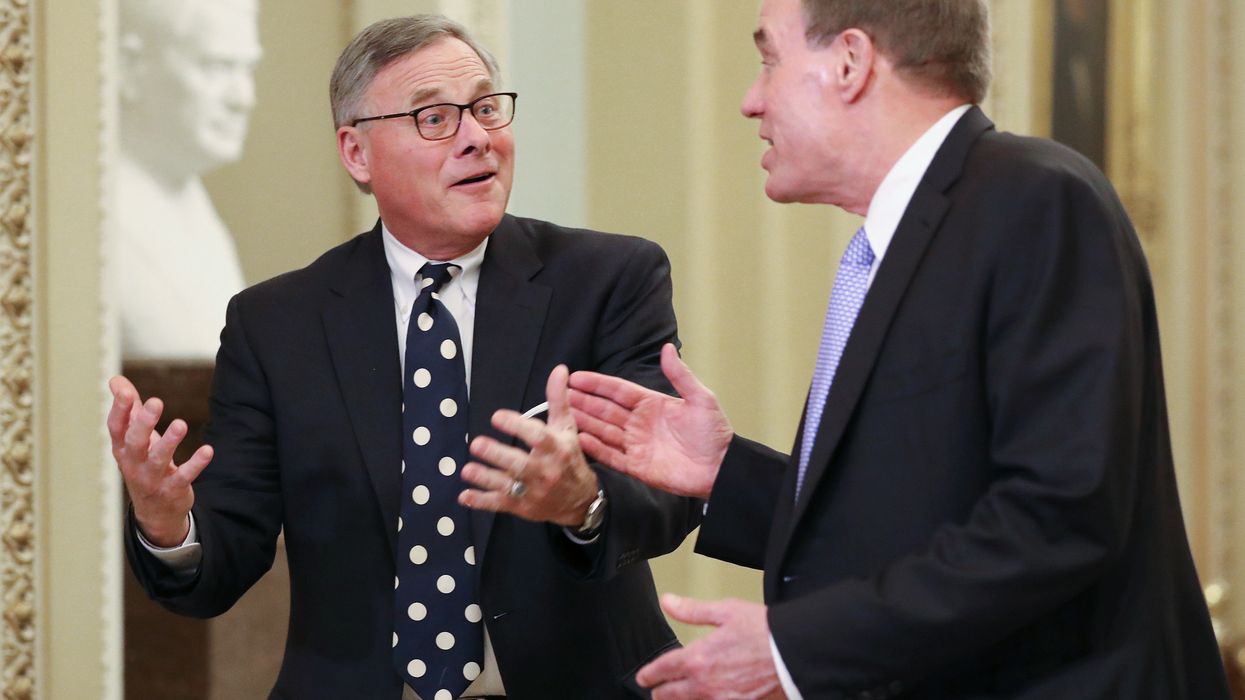Fear of being accused of trying to influence the outcome of the 2016 election, and fear of undermining public confidence in our democracy, caused the Obama administration to mishandle its response to Russian interference during the campaign.
That's the main conclusion in the latest bipartisan report by the Senate Intelligence Committee about foreign meddling in the last presidential contest, released Thursday.
The report is significant in two ways: For the past two years the panel has been the only part of Congress working in a bipartisan way to assess election interference. And it's latest conclusions underscore what both election security experts and democracy reform advocates have been saying more and more: The fear created by what happened in 2016 is almost as much of a problem in 2020 as any new attempts by foreign powers to hack into election systems or spread misinformation.
The previous administration was "frozen by analysis paralysis," Chairman Richard Burr, a North Carolina Republican, said in a joint statement releasing the document. "Obama officials debated courses of action without truly taking one."
The panel's ranking Democrat, Mark Warner of Virginia, said he remains concerned that the fears generated by warning the public about attacks or attempted attacks in the run-up to this November could cause people to lose faith in our entire election system.
The report concedes that the muddled response was partially due to the fact that the extent of what the Russians were doing did not become clear until long after the election.
Reports from various agencies have shown that Russian operatives tried to break into computerized U.S. election systems and used misinformation and publication of thousands of emails stolen from Hillary Clinton's campaign to promote Donald Trump.
Obama's director of national intelligence, James Clapper, and his ambassador to the United Nations, Samantha Power, told committee investigators that, early on, the level of secrecy surrounding the discovery of what the Russians were doing was reminiscent of the lead-up to the raid in which Sept. 11 mastermind Osama bin Laden was killed.
"The major concern I think in the White House was, if we do something or say something, particularly publicly, about this, are we amping it up?" Clapper told the committee.
The committee concluded that:
- The decision to limit and delay the release of information inadvertently constrained the Obama administration's ability to respond.
- The rules of cyber-engagement are being written by "hostile foreign actors, including Russia and China" and that the United States needs to take the lead on the issue.
- More information should be shared within the government and with the public.
Democrat Ron Wyden of Oregon, in a separate statement at the end of the report, was particularly critical of the secrecy of the Obama administration. He said the public will never know the extent of the warnings that were given because no records were kept of some of top administration officials's meetings.
Wyden concluded by renewing his concerns that even now congressional staffers are being denied access to some investigatory materials. "It is bizarre that the committee would not heed its own recommendation and grant access to this information to its own staff," he wrote.




















